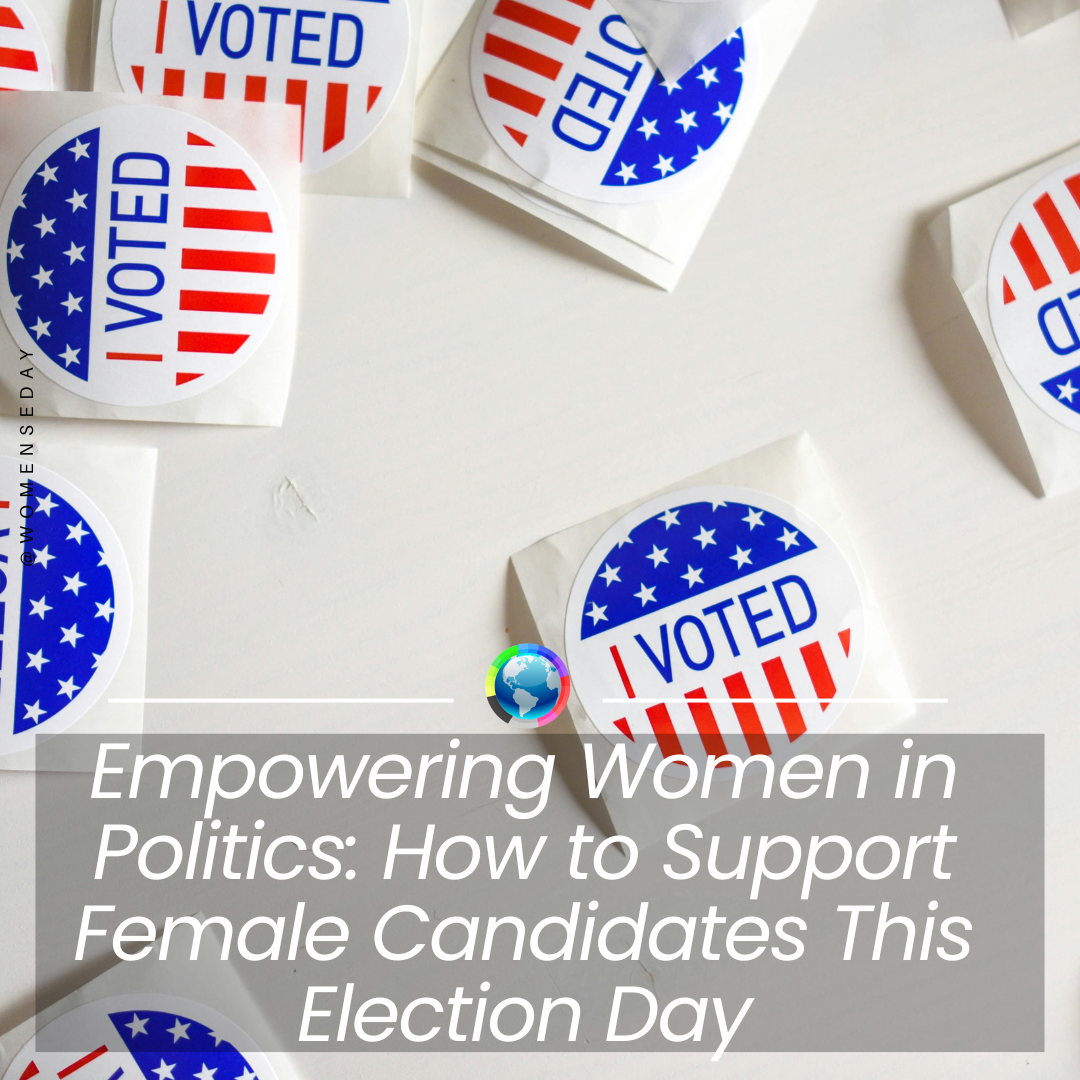With Election Day around the corner, it’s important to celebrate the progress women have made in politics while recognizing that there’s still work to be done to ensure equal representation. Supporting female candidates—regardless of party affiliation—not only enhances diversity in leadership but also brings fresh perspectives to decision-making, which strengthens our democracy. Here’s how you can get involved and make a difference!
The Importance of Women in Politics
Women have made impressive strides in recent years, yet there’s still plenty of room for growth. As of 2024:
- U.S. Congress: Women hold 28.2% of the 535 seats, with 151 women (107 Democrats, 43 Republicans, 1 Independent).
- U.S. Senate: 25 women serve in the Senate (15 Democrats, 9 Republicans, 1 Independent), making up 25%.
- U.S. House of Representatives: 126 women hold seats (92 Democrats, 34 Republicans), making up 29%.
- Cabinet-Level Positions: 11 women serve in high-level presidential appointments.
- U.S. Supreme Court: 4 women are currently serving.
- State Legislatures: Women hold 32.8% of state legislative seats (2,424 women total, spanning various political affiliations).
- Governorship: 12 women serve as governors (8 Democrats, 4 Republicans), accounting for 24%.
- Local Government: Women make up 26.8% of mayors in cities over 30,000 people and 34% in the 100 most populous U.S. cities.
These numbers show progress, but they also highlight the need for continued support of women running for office.
Why Bipartisan Support Matters
Supporting women in politics isn’t about party lines—it’s about fostering strong leadership. Female politicians, whether Democrat, Republican, or Independent, often champion critical issues like healthcare, education, and social welfare.
When we support women from all political backgrounds, we encourage collaboration and innovative solutions that address the challenges we face as a country. Empowering female leaders isn’t just a women’s issue—it’s a community issue that benefits everyone.
How You Can Support Women Politicians
- Educate Yourself & Spread the Word:
Find out who the women candidates are in your area and learn about their platforms. Share their achievements on social media and talk to others about why supporting female candidates matters. - Volunteer Your Time:
Campaigns always need a helping hand. Whether it’s canvassing, phone banking, or hosting events, offering your time can be incredibly impactful. Reach out to local campaigns or organizations like She Should Run and EMILY’s List that focus on supporting women candidates. - Donate:
Financial contributions, no matter how small, can make a big difference in a campaign’s success. Consider donating to female candidates, women-focused political action committees (PACs), or organizations that support women in politics. - Attend Events:
Participate in town halls, rallies, and fundraisers. Engaging directly with candidates allows you to hear their vision and ask questions about the issues that matter to you. - Encourage Women to Run:
Know a woman in your community with leadership potential? Encourage her to consider running for office! Organizations like Run for Something and Ignite offer resources and training to help women take the leap into politics. - Use Your Voice:
Support doesn’t end at the ballot box. Advocate for policies that uplift women in politics by writing letters to your representatives and speaking out about the importance of diverse representation.
Resources to Get Involved
- Center for American Women and Politics (CAWP): CAWP
- She Should Run: She Should Run
- EMILY’s List: EMILY’s List
- Running Start: Running Start
- VoteRunLead: VoteRunLead
- National Conference of State Legislatures (NCSL): NCSL
As we approach Election Day, let’s commit to supporting women candidates at every level of government. By getting involved in the political process, advocating for diverse representation, and backing female leaders, we can help create a more inclusive and equitable future. Let’s make sure women’s voices are heard loud and clear in our government—because when women lead, everyone benefits.
Together, we can support a stronger democracy—one vote, one candidate, and one election at a time!




